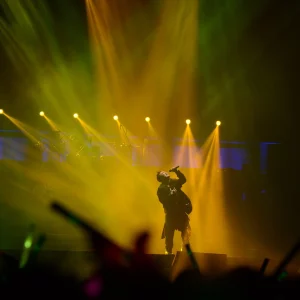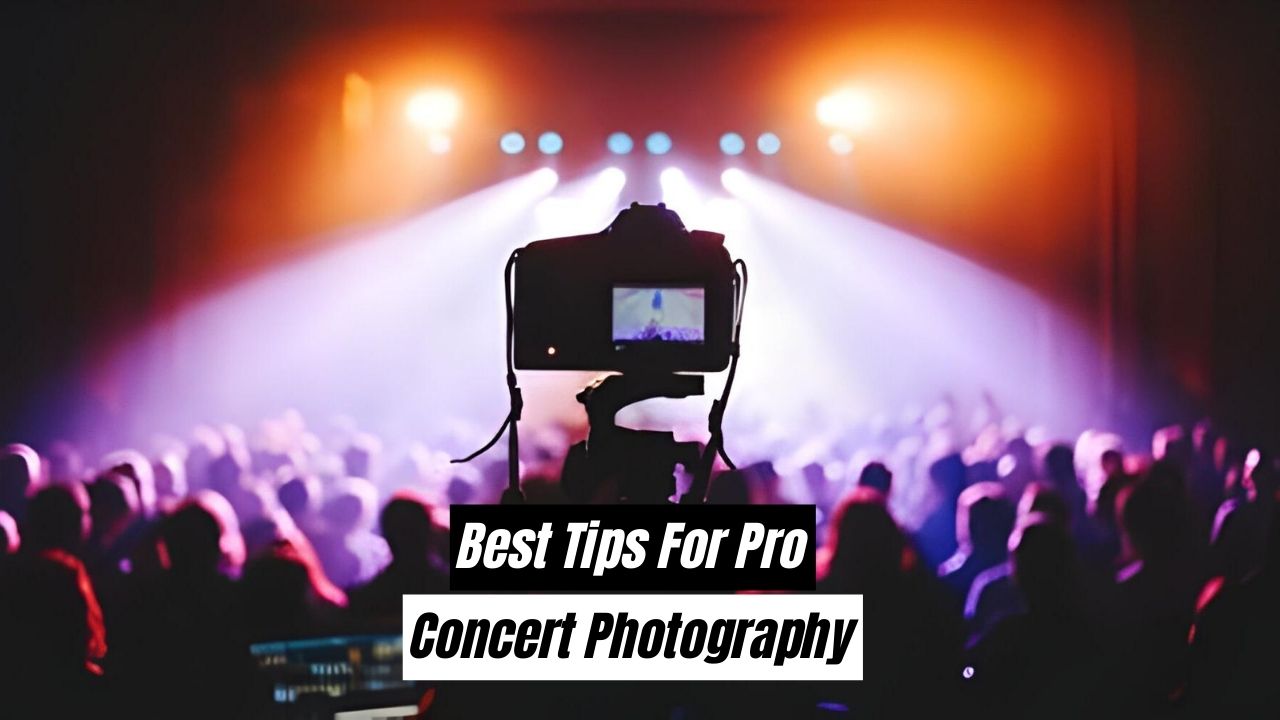Contents
- 1 Introduction to concert photography
- 2 Importance of choosing the right camera for concert photography
- 3 Factors to consider when selecting a camera for concert photography
- 4 Best mirror less cameras for concert photography
- 5 Best Sony cameras for concert photography
- 6 Best Canon cameras for concert photography
- 7 Best camera settings for concert photography
- 8 Best camera lenses for concert photography
- 9 Best point and shoot cameras for concert photography
- 10 Best compact digital cameras for concert photography
- 11 Best cheap cameras for concert photography
- 12 Best beginner cameras for concert photography
- 13 The Hollywood WGA/SAG-AFTRA Strike, Copyright and Photographers
- 14 TourBox Neo Review for Photographers
- 15 Essential Lenses for Concert Photography
- 16 Photographers: Raise Your Rates Right Now
- 17 Institutional Gender Bias, Sexism and Misogyny in Music Photography
- 18 Conclusion
Introduction to concert photography
Concert photography is a thrilling genre which, beyond its appeal to music, also requires the skilful use of cameras to capture exciting on-stage moments. When I am working as a concert photographer, I have discovered that my camera gear is supremely crucial to capture the live performance’s energy, emotion, and mood. In this article, you will be guided on how to select the best camera for concert photography, given the fact that camera type, settings, lenses, and affordability are to be considered while the image sensor quality is to be considered as well.

Importance of choosing the right camera for concert photography
However, the decision of which cameras to buy for concerts makes a big difference in achieving stunning pictures. The low light camera designed for live performances has to be able to take the demands of fast pace and still produce a quality image. For that reason, fine-tuning is also an important aspect of my equation: I put the right lenses on and tweak the settings as I go. It is always recommended that you invest in a camera with fast auto focus and burst mode that is specifically made for concert photography so that you can comfortably capture the power and dynamism of the live experience.
Factors to consider when selecting a camera for concert photography
The choice of camera for concert photography is not an easy one. It has several important aspects. First, Low-light performance is essential. Find a camera with a wide ISO range and low noise levels so that you will be able to take great photos in the dark venues. The second thing to think about is auto focus on the camera. The rapid and accurate focus is a crucial part of taking photos of moving performers and of getting sharp images. What is more, the high burst mode of a camera lets you shoot multiple frames per second, hence your chances of the perfect shot increase. To wrap it up, pay attention to the weight, size and build quality as a concert photographer, you will most likely shoot for several hours in tough conditions.
Best mirror less cameras for concert photography
The mirror less cameras have become a choice of many concert photographers because of their compact size, versatility and impressive photo image quality. There are Sony Alpha a7 III and Fujifilm X-T4 which are performanceful for concert photography. The Sony Alpha a7 III includes a full-frame sensor, great low-light performance, and state-of-the-art autofocus. Though Fuji X-T4 provides terrific image stabilization, film simulation modes, and a broad range of high-quality lenses, it is equal to X-T5 in the end.
Best Sony cameras for concert photography
Sony is well known to produce excellent cameras and the range of cameras for concert photography is superb. The Sony Alpha a7R IV (otherwise known as the Sony a7 IV) is one of the best options available for a top-tier high-resolution sensor, excellent low-light performance, and superb dynamic range. The Sony Alpha a9II, on the other hand, deserve great credit for its autofocus system and continuous shooting speed when shooting fast-motion action.
Best Canon cameras for concert photography
Canon cameras have for long been admired by concert photographers for their reliability, image quality, and great lens choice. Canon EOS 5D Mark IV is one of most demanded cameras that are equipped with a full frame sensor, excellent low light performance and the fast performance of auto focus. For those who would like to spend a bit less, the Canon EOS 90D has the ability to provide the same high image quality, fast auto-focus and a great APS-C sensor. The Canon R6 is a newer model with more advanced features.
Best camera settings for concert photography
To shoot spectacular concert photographs, you should have your settings for concert photography right. Begin by opening the aperture (low f-stop number) to let much light in and blur the background to isolate the performers from the background. Set the ISO value to a high setting in order to compensate for low light conditions, but don’t forget to check the noise levels. Freeze motion by using a fast shutter speed and thereby, preventing motion blur. Try out the white balance settings in order to reproduce the light environment of each show.
Best camera lenses for concert photography
Choosing the right lens is a key element for the purpose of getting high-quality and versatile shots of a concert. Canon EF 24-70mm f/2.8L II USM is the number one rated zoom lens that performs perfectly in capturing the whole crowd scenes from wide angle or close-up details of performers. In the same way, the Sony FE 24-70mm f/2.8 GM is also a nice option for concert lens zoom settings. For those who prefer prime lenses, the Canon EF 50 mm f/1.4 USM and the Sony FE 85 mm f/1.4 GM are distinct in their high-quality images and superb low-light performance.
Explanation with “Jake Chamseddine”
Best point and shoot cameras for concert photography
For concert photography, a pocket-sized camera like the Sony RX100 VII gives you flexibility with its portability, fast auto focus, and strong low-light capabilities. Canon Power Shot G7 X Mark III is another compact camera that offers a wide range of zoom and a flip-out display screen, making it easier to have a good view of the concert scene while providing top quality images.
Best compact digital cameras for concert photography
The digital cameras with compact size are a good option for concert photography, which make the trade off between portability and advanced features. The Fujifilm X100V, with its vintage look and fixed lens, is the perfect camera for taking photos of the up-close concert moments having the top-notch image quality. Likewise, the Panasonic Lumix LX100 II is exceptional due to its larger sensor, zoom lens, and a high-resolution viewfinder, which is a perfect complete package for live music concerts.
Best cheap cameras for concert photography
There are some good cheap cameras for photography available on the market, even if you are just starting with photography, you don’t have to sacrifice quality. The Nikon D3500, which is an entry-level DSLR, provides top-notch image quality, user-friendly controls, and a broad lens compatibility. The Sony Alpha a6000 is one more budget-friendly option that is compact, features a fast auto focus system and provides good low-light performance. It makes it possible to shoot concerts without a high price tag.
Best beginner cameras for concert photography
The Canon EOS Rebel T7i differentiates itself as the best camera for a beginner in the concert scene, boasting of its status as a beginner DSLR, guided interface, reliable autofocus, and exceptional low-light performance. For the more compact option, Sony Alpha a6100 has user-friendly controls, impressive auto focus capabilities, and good image quality and therefore is a great choice for those new to concert photography.
The Hollywood WGA/SAG-AFTRA Strike, Copyright and Photographers
The latest strike action of the Hollywood Writers Guild of America (WGA) and Screen Actors Guild-American Federation of Television and Radio Artists (SAG-AFTRA) has revealed the need of copyright and licensing for concert photographers. It is important to realize the photographer’s rights and the legal aspects of taking pictures at live shows. To make money from your work, it is necessary to secure the essential releases and licenses thus; your concert photography will be protected and profitable.
TourBox Neo Review for Photographers
The TourBox Neo provides concert photographers an opportunity to personalize its dials and buttons to their liking so that they can easily navigate through adjusting settings and editing software. The space saving controller is a game changer for the post-processing tasks and is a must-have for photography enthusiasts who want an efficient editing process.
Essential Lenses for Concert Photography
Having a good lens for concert photography is a personal preference and style, but some lenses are must-have. Wide angle lens such as the Nikon AF-S NIKKOR 14-24mm f/2.8G ED or the Canon EF 16-35mm f/2.8L III USM is the best to shoot the stage’s grandeur and the audience’s energy. For portraits and close-up shots of artists, a telephoto lens, such as the Nikon AF-S NIKKOR 70-200mm f/2.8E FL ED VR or the Canon EF 70-200mm f/2.8L IS III USM, is crucial. In addition, the fast prime lens, such as Sigma 35mm f/1.4 DG HSM Art or Sony FE 50mm f/1.8 is irreplaceable in low-light conditions, using which you can take the artistic shots with amazing bokeh effect.
Photographers: Raise Your Rates Right Now
It is important for concert photographers to realize the value of their expertise and the uniqueness of their craft when setting rates. Factors to think about include their experience, the quality of equipment, the time invested, and the specific challenges of the concert photography. Photographers who seek fair remuneration not only affirm their worth but also contribute to the development and sustainability of the industry.
Institutional Gender Bias, Sexism and Misogyny in Music Photography
The field of music photography, especially concert photography, has suffered from gender bias, sexism, and misogyny. The female photographers have faced the great obstacles in the access, opportunities and recognition. To foster inclusivity and provide equal opportunities for all genders, the systemic issues need to be tackled. The commitment of industry to inclusivity will be the key to its success with different opinions and voices.
We include another video for better understanding:
What’s the Best Camera for Shooting Concerts? | Ask David Bergman
Conclusion
Selecting the best concert photography camera is a personal quest that is dependent on the individual preferences, shooting style and budget. No matter if you are a mirror less camera, DSLR, or compact digital camera; the factors that should be considered include low-light performance, autofocus capabilities, lens variety, and budget. With appropriate gear and skill improvement, you will be able to capture the essence of live music and to create everlasting memories.
Now it’s your turn to grab your camera, dive into the exciting atmosphere of the live shows, and let your creativity come alive to shoot the moment and the magic of the stage. Happy shooting!
